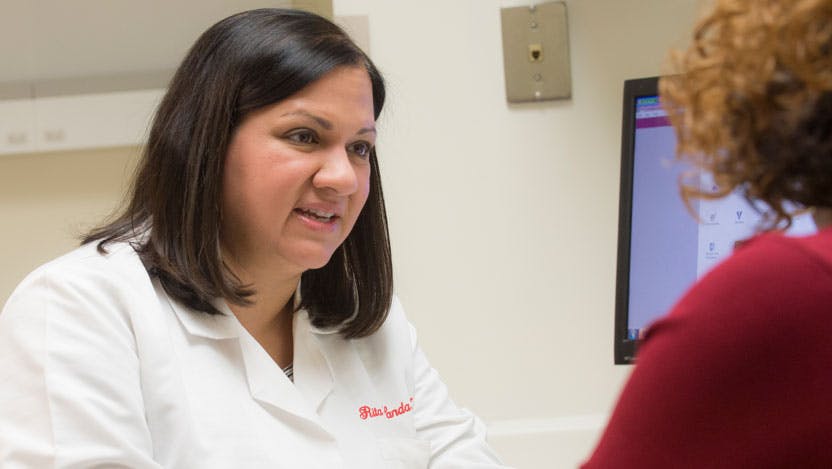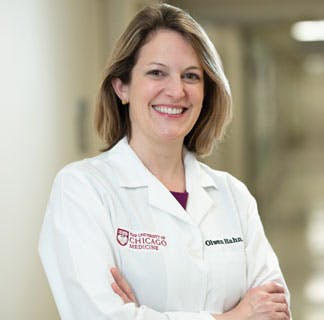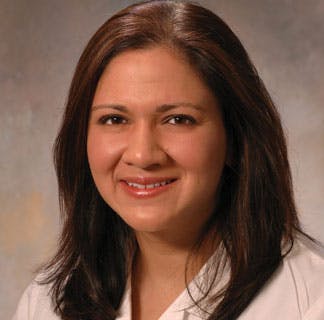Immunotherapy shows promise for triple-negative breast cancer

In February 2016, former United States President Jimmy Carter announced that he no longer required treatment for melanoma, a deadly form of skin cancer that had spread to his liver and brain.
Historically, metastatic melanoma has had a dismal prognosis. Carter was treated with the standard surgery and radiation, followed by what has become the new standard: immunotherapy. These drugs are designed to boost the immune system's response to the cancer rather than directly attacking tumors with chemotherapy.
Carter was fortunate. He received an immune-system booster called pembrolizumab (Keytruda) for three months. When he was done, his doctors reported he no longer had any evidence of disease.
This new approach had already won approval from the United States Food and Drug Administration. In 2011, the FDA approved ipilimumab (Yervoy) for treatment of melanoma, followed by the first checkpoint inhibitors, pembrolizumab and nivoumab (Opdivo), in 2014. In 2015, both of those drugs were approved for non-small cell lung cancer as well as advanced renal cell carcinoma (a form of kidney cancer).
So immunotherapy has become a rapid, remarkable success, and is now being tested in multiple cancer types, but response rates vary. A University of Chicago-based study presented at the ASCO meeting last year, for example, showed that pembrolizumab decreased the size of advanced head and neck tumors by 30 percent or more in 25 percent of 132 patients with difficult to treat tumors, making it nearly twice as effective as standard treatments.
One area of particular concern is triple-negative breast cancer (TNBC). This common disease, responsible for about 20 percent of all breast cancers, is challenging to treat because the known targets the receptors for the hormones estrogen and progesterone and for human epidermal growth factor receptor 2 (better known as HER2) are missing.
In December of 2014, Rita Nanda, MD, assistant professor of medicine at the University of Chicago, presented results at a conference from the phase-1b, multi-center KEYNOTE-012 trial, which assessed treatment with 10 milligrams per kilogram of pembrolizumab every two weeks for triple-negative breast cancer. The final results from that trial were published May 2, 2016, in the Journal of Clinical Oncology.
In this study the first published report to demonstrate clinical activity for an immune checkpoint inhibitor in metastatic triple-negative breast cancer 18.5 percent of the patients with recurrent or cancer responded to the drug. Of the 27 patients who were studied, one had a complete response, four had a partial response and seven had stable disease. The patient who had a complete response had previously received eight different lines of therapy for metastatic disease.
Although only one-fifth of those treated had a response to therapy, there were some long-term responders, "with durability," according to one outside expert, "that we don't see with other therapies."
The most common side effects were very mild and included joint pain (18.8%), fatigue (18.8%), muscle pain (15.6%) and nausea (15.6%). One patient died soon after the initiation of treatment, and was related to rapidly progressive TNBC.
Evidence of clinical activity in this initial study, combined with a tolerable safety profile, led to a follow-up Phase 2 study, now under way, using a higher dose 200 milligrams of pembrolizumab every three weeks.
That trial is still in the early stages, but one triple-negative patient currently being treated at the University of Chicago Medicine has seen encouraging results. Paula Fuhler, of New Baden, Ill., about 25 miles from St. Louis, had a recurrence just two months after standard treatment of chemotherapy followed by surgery and radiation. In October, 2015, she saw an article about results from the Phase-1b pembrolizumab study and contacted Nanda. She qualified and was enrolled in the Phase 2 study in December.
After nine weeks of immunotherapy, she had her first trial-related CT scan. Her care team warned her to keep her expectations in check. "Don't get your hopes up," they told her. "You haven't been on the treatment long," Nanda cautioned. "It usually takes 18 weeks before we see conclusive results."
Waiting for test results can be nerve wracking, but when Nanda walked into the room, Fuhler knew the news would be good. "She looked ecstatic," Fuhler said. After a little more than two months of therapy, the scan showed real progress. Fuhler's largest tumor was shrinking. It was significantly smaller.
Adding to her good fortune, she has not yet felt any troubling side effects from the treatment, "nothing that has kept me down," she said. She gets a slight rash that lasts only a few days after each treatment as well as sporadic fatigue. She often feels tired the day of and after treatment, but she suspects the five-hour drive that she and her husband make from their home to the University and then back, often on the same day, is responsible, at least in part, for her fatigue.
She also follows instructions. She eats healthy food and tries to get adequate rest. She is pleased, after having gone through chemotherapy in 2014 and 2015, that "I get to keep my hair." She says she now gets frequent compliments from friends on how great she looks.
Although she understands that lasting complete responses have been rare for patients with TNBC, she is grateful for the benefits the treatment has brought her so far. "I hope it will continue to work for me for a long, long time," she says.

Breast Cancer Care
Our team represents expertise across the spectrum of breast cancer care: breast imaging, breast surgery, medical and radiation oncology, plastic and reconstructive surgery, lymphedema treatment, clinical genetics, pathology and nursing. Our comprehensive care approach optimizes chances of survival and quality of life.
Learn more about UChicago Medicine breast cancer care.
Rita Nanda, MD
Rita Nanda, MD, specializes in the treatment of breast cancer. She has particular expertise in the treatment of triple-negative, early onset, hereditary, and locally advanced breast cancers.
Read Dr. Nanda's profile
